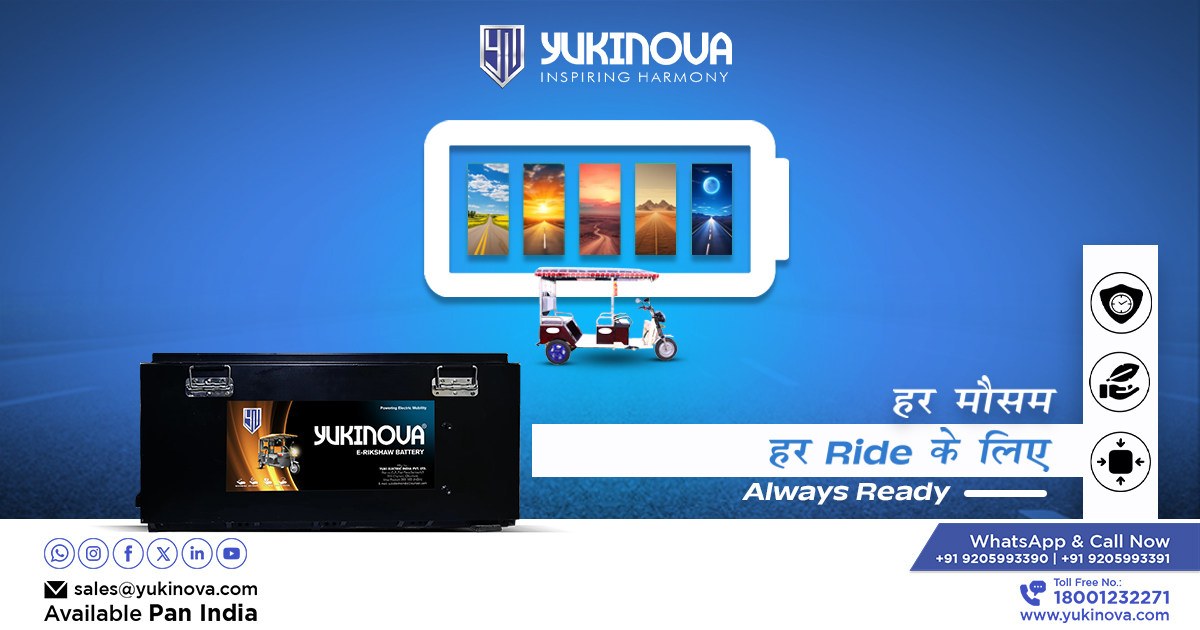In today’s hectic e-commerce environment, last-mile delivery has become an essential part of the supply chain. As consumers increasingly expect fast and efficient delivery of their online purchases, logistics companies are under pressure to optimize their operations to meet these demands. One technology that has played a pivotal role in transforming last-mile delivery solutions is lithium-ion batteries. In this blog, we’ll explore the significant role that lithium-ion batteries play in powering last-mile delivery vehicles and how they contribute to efficiency, sustainability, and reliability in urban logistics.
Efficiency and Performance:
Lithium-ion batteries are prized for their high energy density, which allows them to store large amounts of energy in a relatively compact and lightweight package. This energy density translates to longer driving ranges for electric delivery vehicles, enabling drivers to cover more ground on a single charge without the need for frequent recharging stops. Yukinova batteries have been designed to provide high efficiency to keep the vehicle running for a longer time, making it the best Lithium ion battery manufacturer in UP for two wheelers and three wheelers vehicles.
Moreover, lithium-ion batteries exhibit excellent charge retention characteristics, meaning they can maintain their charge over extended periods of time. This ensures that delivery vehicles are ready for use whenever needed, minimizing downtime and maximizing productivity in last-mile delivery operations.
Sustainability and Environmental Benefits:
One of the most significant advantages of lithium-ion batteries in last-mile delivery solutions is their environmental friendliness. Unlike traditional gasoline or diesel-powered vehicles, electric delivery vehicles powered by lithium-ion batteries produce zero tailpipe emissions, reducing air pollution and greenhouse gas emissions in urban areas.
Furthermore, lithium-ion batteries can be charged using renewable energy sources such as solar or wind power, further reducing their carbon footprint. By transitioning to electric delivery vehicles equipped with lithium-ion batteries, logistics companies can contribute to efforts to combat climate change and create cleaner, more sustainable cities.
Reliability and Cost Savings:
In addition to their efficiency and environmental benefits, lithium-ion batteries offer reliability and cost savings advantages for last-mile delivery operations. Electric delivery vehicles powered by lithium-ion batteries have fewer moving parts and require less maintenance compared to traditional internal combustion engine vehicles. This translates to lower operating costs and reduced downtime for maintenance and repairs, resulting in higher fleet uptime and improved delivery reliability.
Moreover, as battery technology continues to advance, the cost of lithium-ion batteries is steadily declining, making electric delivery vehicles more affordable and accessible to logistics companies of all sizes. With lower fuel and maintenance costs, electric delivery vehicles equipped with lithium-ion batteries offer a compelling economic case for adoption, especially in dense urban areas where operating costs are typically higher.
Enhanced Flexibility and Adaptability:
Lithium-ion batteries also offer enhanced flexibility and adaptability for last-mile delivery solutions. Electric delivery vehicles can be charged at various locations, including distribution centers, depots, and charging stations strategically located throughout urban areas. This flexibility allows logistics companies to optimize their delivery routes and schedules, minimizing travel times and maximizing efficiency.
Furthermore, lithium-ion batteries can be recharged quickly using fast-charging technology, reducing downtime between deliveries and enabling drivers to complete more deliveries in less time. This increased flexibility and adaptability contribute to improved customer satisfaction and greater competitiveness in the rapidly evolving e-commerce landscape.
Conclusion:
In conclusion, lithium-ion batteries play a crucial role in powering last-mile delivery solutions, enabling logistics companies to meet the growing demand for fast, efficient, and sustainable delivery services. With their high energy density, environmental friendliness, reliability, and cost-effectiveness, Yukinova lithium-ion batteries are driving the transition towards cleaner and more efficient urban logistics operations. As battery technology continues to advance, electric delivery vehicles equipped with lithium-ion batteries will become increasingly integral to the future of last-mile delivery, providing a greener, more sustainable, and more efficient solution for meeting the evolving needs of e-commerce consumers.
Maximize your potential with high-performance Yukinova lithium-ion batteries. Trust in our expertise – buy today!
